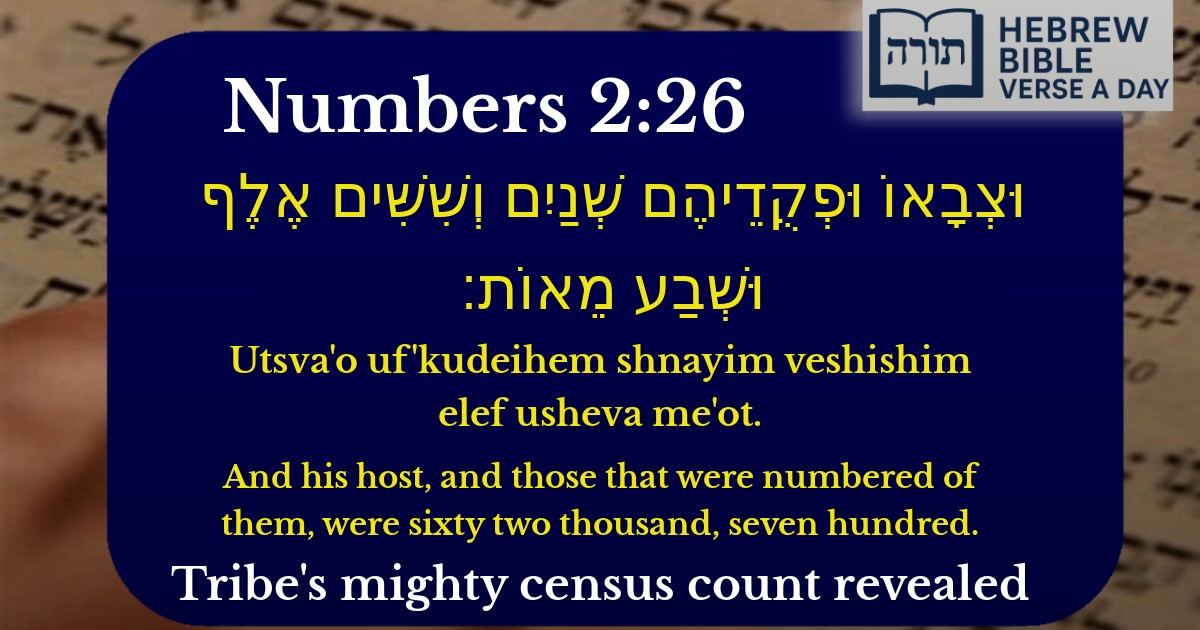Join Our Newsletter To Be Informed When New Videos Are Posted
Join the thousands of fellow Studends who rely on our videos to learn how to read the bible in Hebrew for free!
Hebrew Text
וּצְבָאוֹ וּפְקֻדֵיהֶם שְׁנַיִם וְשִׁשִּׁים אֶלֶף וּשְׁבַע מֵאוֹת׃
English Translation
And his host, and those that were numbered of them, were sixty two thousand, seven hundred.
Transliteration
Utsva'o uf'kudeihem shnayim veshishim elef usheva me'ot.
Hebrew Leining Text
וּצְבָא֖וֹ וּפְקֻדֵיהֶ֑ם שְׁנַ֧יִם וְשִׁשִּׁ֛ים אֶ֖לֶף וּשְׁבַ֥ע מֵאֽוֹת׃
וּצְבָא֖וֹ וּפְקֻדֵיהֶ֑ם שְׁנַ֧יִם וְשִׁשִּׁ֛ים אֶ֖לֶף וּשְׁבַ֥ע מֵאֽוֹת׃
🎵 Listen to leining
Parasha Commentary
📚 Talmud Citations
This verse is not quoted in the Talmud.


Context of the Verse
The verse (Numbers 2:26) describes the census count of the tribe of Asher during the wilderness encampment. The total number of men eligible for military service from Asher was 62,700. This count is part of the broader census of the tribes of Israel in the book of Bamidbar (Numbers).
Rashi's Commentary
Rashi (Rabbi Shlomo Yitzchaki) explains that the phrase "וּצְבָאוֹ" (and his host) refers to the military divisions of the tribe of Asher. He notes that the term "וּפְקֻדֵיהֶם" (and those that were numbered of them) emphasizes that this was an exact count, conducted with precision under divine command (Rashi on Numbers 2:26).
Symbolism of the Number
The number 62,700 is significant in the context of the tribal counts. The Midrash (Bamidbar Rabbah 2:10) suggests that each tribe's number reflects its unique spiritual qualities. Asher, blessed with abundance (Genesis 49:20), had a large population, symbolizing material and spiritual prosperity.
Military Significance
Rambam (Maimonides) in Mishneh Torah, Hilchot Melachim discusses the importance of military counts in Jewish tradition. The census was not merely for logistical purposes but also to demonstrate the strength and unity of the tribes under Hashem's protection.
Comparison with Other Tribes
The Talmud (Bava Batra 122a) notes that Asher's count was neither the largest nor the smallest among the tribes, reflecting its balanced role. The tribe's position in the encampment (north of the Mishkan) and its size were divinely ordained for harmony among the tribes.